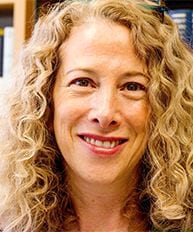Recovering Women from the Scholars (Even from Me)
When considering the midrashim based on The Song of Songs, particularly Songs Rabbah, scholars of the Bible and Rabbinics have taken a few different paths. Some assert that the rabbis, like their Christian counterparts, allegorized The Song thoroughly and thereby stripped the Song of its erotic imagery. Others have employed these and other female-centered texts to show that the ancient rabbis were misogynistic at the worst, or disdainful and paternalistic toward women at best. In my book on aroma, I argued that the midrashim on scent have little trouble with “imagined” women or women in general, but are far more problematic when it came to “real” women. Although all of these concepts have merit, the more I consider the issue the less convinced I am that any of these claims are wholly viable. By their very nature, midrash and rabbinic discourse promoted diverse perspectives and unresolved arguments, not uniformity of opinion. In addition, I am beginning to see that the nuances are more important than I originally thought. This paper analyzes midrashim from Songs Rabbah that are positive about women, and not just imaginary women but real, actual “women of Israel.” Further, these midrashim, while not as explicit as The Song itself, are fairly racy from a rabbinic perspective. They depict sex in positive terms, women in positive terms, and female agency in sex in positive terms. In sum, this paper serves as a corrective, or at least an effort to balance our perspectives, on the woman of The Song and her role as an inspiration in midrash.
 Deborah A. Green is Greenberg Associate Professor of Hebrew Language and Literature at the University of Oregon. Her interests lie in the history, literature, and interpretation of the Hebrew Bible, particularly as it was adopted and interpreted by Jews from the Second Temple through Byzantine periods. Her book The Aroma of Righteousness: Scent and Seduction in Rabbinic Life and Literature (Penn State University Press, 2011) investigates rabbinic interpretation (midrash) of perfume and incense. She is particularly interested in the images of aromatics in the Hebrew Bible, and how the early rabbis inscribe their own daily experience with aromatics upon the interpretations they create. Her latest project focuses on Eden and other gardens in the Bible and ancient Jewish literature. She is principally interested in studying the interpretation of gardens—both real and imagined—through a variety lenses (geography, gender, the human senses, social power and dynamics, space, economics, etc.); she asks how the image of the garden becomes a central metaphor in ancient Judaism, representing heaven, the Covenant, and the Jewish people. Deborah is also the co-editor of two books, Commemorating the Dead: Texts and Artifacts in Context (Walter de Gruyter, 2008) and Scriptural Exegesis: The Shapes of Culture and the Religious Imagination: Essays in Honour of Michael Fishbane (Oxford University Press, 2009).
Deborah A. Green is Greenberg Associate Professor of Hebrew Language and Literature at the University of Oregon. Her interests lie in the history, literature, and interpretation of the Hebrew Bible, particularly as it was adopted and interpreted by Jews from the Second Temple through Byzantine periods. Her book The Aroma of Righteousness: Scent and Seduction in Rabbinic Life and Literature (Penn State University Press, 2011) investigates rabbinic interpretation (midrash) of perfume and incense. She is particularly interested in the images of aromatics in the Hebrew Bible, and how the early rabbis inscribe their own daily experience with aromatics upon the interpretations they create. Her latest project focuses on Eden and other gardens in the Bible and ancient Jewish literature. She is principally interested in studying the interpretation of gardens—both real and imagined—through a variety lenses (geography, gender, the human senses, social power and dynamics, space, economics, etc.); she asks how the image of the garden becomes a central metaphor in ancient Judaism, representing heaven, the Covenant, and the Jewish people. Deborah is also the co-editor of two books, Commemorating the Dead: Texts and Artifacts in Context (Walter de Gruyter, 2008) and Scriptural Exegesis: The Shapes of Culture and the Religious Imagination: Essays in Honour of Michael Fishbane (Oxford University Press, 2009).